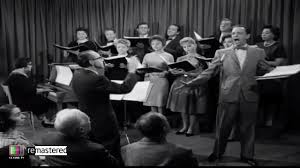
The Comedic Genius of Andy and Barney Remembered in A Little Lower Moment
The small, idyllic town of Mayberry, North Carolina, exists in the collective American consciousness as a comforting anachronism, a sepia-toned memory of simpler times. Yet, the enduring appeal of The Andy Griffith Show lies not merely in its nostalgic charm, but in the finely etched characterizations and the timeless comedic alchemy forged between its two central figures: Sheriff Andy Taylor and Deputy Barney Fife. Their genius, often understated, truly shone in what one might call "a little lower moment"—those quiet, everyday interactions, stripped of grand spectacle, where the mere collision of their personalities created ripples of profound and enduring laughter.
Andy Taylor, as played by the effortlessly charismatic Andy Griffith, served as the town's unflappable anchor. He was the quiet observer, the fount of homespun wisdom, and, crucially for the show's comedic engine, the ultimate straight man. His humor simmered, expressed through a wry smile, a knowing glance, or a subtle, almost imperceptible shake of the head. Andy's genius lay in his capacity for gentle deflation, his ability to let Barney’s balloon of self-importance inflate to near bursting, only to prick it with a single, perfectly timed word or a look of profound, affectionate exasperation. He rarely told a joke; he was the setup for Barney’s punchline, often simply by existing as the calm eye in Barney’s self-made storm.
Barney Fife, portrayed by the inimitable Don Knotts, was the human lightning rod, a whirlwind of well-intentioned ineptitude, neurotic zeal, and profound insecurity. Barney was a man perpetually on the verge of either a brilliant breakthrough or a catastrophic blunder, usually the latter. His physical comedy was a masterclass in controlled chaos: the stiff-legged gait, the self-important puffing of his chest, the frantic hand gestures that punctuated his pronouncements, and the way his entire body would collapse in deflated despair. Barney's humor was loud, physical, and often born of his desperate need for validation and his unwavering belief in his own (non-existent) capabilities.
The "little lower moment" is where their individual comedic streams merged into a river of genius. Imagine a typical scene: the two of them in the sheriff's office, perhaps Andy quietly whittling or reading the paper, and Barney, seizing a lull in the non-existent crime wave, launching into one of his many theoretical disquisitions on law enforcement, crime prevention, or even the finer points of human psychology. It’s in these moments that the show’s comedic heart truly beats.
Barney might begin with an authoritative, "Now, Andy, let me tell you something about human nature," or "A good lawman, Andy, operates on instinct, and my instinct is telling me…" As he expounds, his voice might rise, his eyes widen, and his hands chop the air, illustrating a point only clear to himself. Andy, meanwhile, offers little more than a "Hmm," a slow blink, or a slight shift in his posture. He doesn’t interrupt, doesn’t scoff, doesn’t even overtly correct. He simply allows Barney to build his magnificent, illogical edifice.
The comedy isn't in a clever retort from Andy, but in his reaction. It’s the subtle tightening around his eyes as he tries to keep a straight face, the almost imperceptible sag of his shoulders as Barney spirals further into absurdity, or the quiet, profound sigh that speaks volumes more than any spoken line. When Andy finally does intervene, it’s not with a sharp put-down, but with a gentle redirect, a mild suggestion that completely unravels Barney’s elaborate scheme, leaving him sputtering, deflating, and then often, hilariously, attempting to save face.
Think of Barney attempting to explain the nuances of a "citizen's arrest" to a bewildered Mayberry resident, only for Andy to step in with a single, simple question that exposes the flaw in Barney's entire premise. Or Barney confidently offering relationship advice, only for Andy's understated wisdom to reveal the fundamental misunderstanding at its core. These aren't big, flashy gag setups. They are grounded in the mundane, in the rhythms of daily life, and the humor blossoms from the authentic collision of two fully realized personalities.
What makes this "little lower moment" comedic genius is its profound humanity. There's no meanness in Andy's humor; his exasperation with Barney is always tempered by deep affection and understanding. He sees Barney’s flaws but loves him for them, recognizing the well-meaning heart beneath the bluster. Barney, for all his foibles, is never a caricature; he is a relatable portrait of insecurity, striving, and the universal desire to be seen and valued. Their dynamic, therefore, transcends mere jokes; it becomes a poignant ballet of restraint and release, wisdom and foolishness, friendship and gentle exasperation.
In a television landscape often dominated by cynicism and rapid-fire gags, the comedic genius of Andy and Barney, particularly in their "little lower moments," remains a beacon. It reminds us that the deepest laughter often comes not from grand pronouncements or elaborate schemes, but from the quiet observations of human nature, from the affectionate exasperation between friends, and from the timeless appeal of a truly great straight man and his perfectly imperfect foil. Mayberry may be a fictional town, but the genuine, enduring humor of its two main lawmen feels as real and as comforting as a quiet afternoon on the porch.
